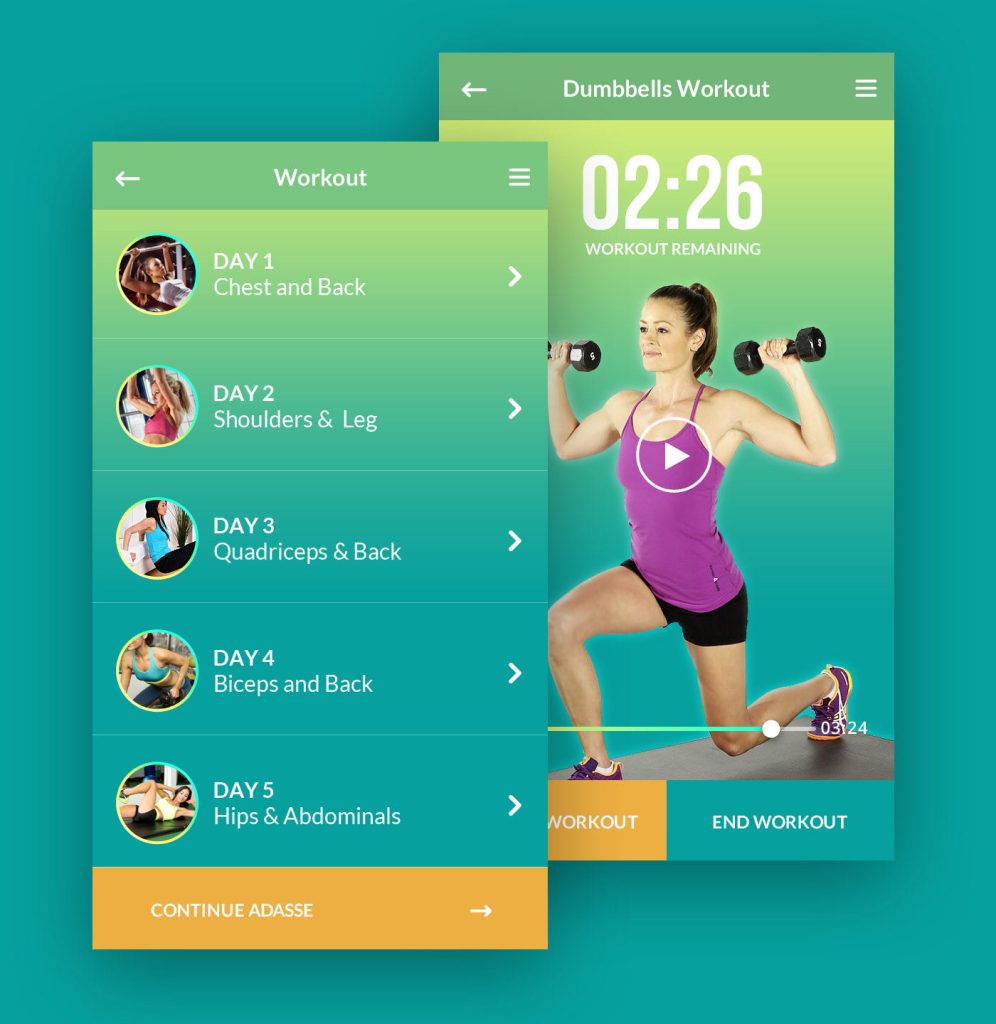In today’s fast-paced world, fitness apps have emerged as powerful tools that encourage healthier lifestyles globally. These innovative applications not only provide users with personalized workout plans and nutrition tracking but also foster a sense of community among fitness enthusiasts. By leveraging technology, fitness apps are transforming the way individuals approach their health and wellness, making it easier than ever to stay motivated and achieve fitness goals.
As you delve deeper into this article, you will discover the various features that make fitness apps indispensable for anyone looking to improve their health. From tracking physical activity and monitoring dietary habits to offering virtual coaching and social sharing capabilities, these apps cater to diverse needs and preferences. We will also explore the impact of gamification in fitness apps, which adds an element of fun and competition, further motivating users to stay active.
Moreover, we will discuss the global reach of fitness apps and how they are bridging gaps in access to health resources. Whether you are a beginner or a seasoned athlete, the insights shared in this article will equip you with the knowledge to harness the full potential of fitness apps. So, keep reading to learn how these digital tools can empower you to lead a healthier, more active lifestyle!
The Rise of Fitness Apps in the Digital Age
The proliferation of smartphones and wearable technology has led to a significant rise in the popularity of fitness apps. These applications provide users with the tools to track their physical activities, monitor their nutrition, and set fitness goals. As more people become health-conscious, the demand for user-friendly and effective fitness solutions has surged. This trend is not just limited to developed countries; emerging markets are also witnessing a boom in fitness app usage, making health and wellness more accessible globally.
Fitness apps often incorporate features such as step tracking, calorie counting, and workout planning, which cater to a diverse audience. The gamification of fitness, where users earn rewards for achieving milestones, has further enhanced user engagement. This shift towards digital fitness solutions is transforming how individuals approach their health, making it easier to adopt and maintain healthier lifestyles.
Personalized Fitness Plans and User Engagement
One of the key advantages of fitness apps is their ability to offer personalized fitness plans tailored to individual needs and goals. By utilizing algorithms and user data, these apps can create customized workout routines and dietary suggestions that align with a user’s fitness level and preferences. This personalization fosters a sense of ownership and commitment, encouraging users to stick to their health regimens.
Moreover, many fitness apps include social features that allow users to connect with friends or join community challenges. This social aspect not only motivates users but also creates a support system that can lead to better adherence to fitness goals. The combination of personalized plans and community engagement is a powerful driver in promoting healthier lifestyles across various demographics.
The Role of Data Tracking in Health Management
Data tracking is a fundamental component of fitness apps, enabling users to monitor their progress over time. By logging workouts, meals, and other health metrics, individuals can gain insights into their habits and make informed decisions about their health. This data-driven approach empowers users to identify patterns, set realistic goals, and celebrate their achievements.
Furthermore, many fitness apps integrate with wearable devices, providing real-time feedback on physical activity and health metrics such as heart rate and sleep quality. This integration enhances the user experience and allows for a more comprehensive understanding of one’s health. As users become more aware of their health data, they are more likely to make positive lifestyle changes, contributing to a global shift towards healthier living.
Overcoming Barriers to Fitness with Technology
Despite the benefits of fitness apps, many individuals still face barriers to maintaining a healthy lifestyle, such as time constraints, lack of motivation, and limited access to fitness resources. Fitness apps address these challenges by providing flexible workout options that can be done anywhere, anytime. This convenience is particularly beneficial for busy professionals and parents who may struggle to find time for traditional gym sessions.
Additionally, fitness apps often offer a variety of workout styles, from high-intensity interval training (HIIT) to yoga, catering to different preferences and fitness levels. By making fitness more accessible and adaptable, these apps help users overcome obstacles and integrate physical activity into their daily routines, ultimately promoting a healthier lifestyle.
The Future of Fitness Apps and Global Health Trends
As technology continues to evolve, the future of fitness apps looks promising. Innovations such as artificial intelligence and virtual reality are set to enhance user experiences, making workouts more immersive and engaging. Furthermore, the integration of health data from various sources, including medical records, could lead to more comprehensive health management solutions.
Global health trends indicate a growing emphasis on preventive care and holistic wellness, which fitness apps are well-positioned to support. By continuing to adapt to user needs and leveraging technological advancements, fitness apps will play a crucial role in encouraging healthier lifestyles worldwide. As more individuals embrace these digital tools, the potential for improved public health outcomes becomes increasingly attainable.
| Aspect | Description |
|---|---|
| Introduction | Fitness apps have gained popularity worldwide, promoting healthier lifestyles through technology. |
| Accessibility | These apps are accessible on smartphones, making fitness resources available to a broader audience. |
| Personalization | Many apps offer personalized workout plans and nutrition advice tailored to individual goals and preferences. |
| Tracking Progress | Users can track their workouts, monitor progress, and set achievable goals, which enhances motivation. |
| Community Support | Fitness apps often include social features, allowing users to connect, share achievements, and support each other. |
| Variety of Workouts | They provide a wide range of workout options, from yoga to high-intensity interval training (HIIT), catering to different interests. |
| Nutrition Guidance | Many apps include meal planning and calorie tracking features, helping users maintain a balanced diet. |
| Gamification | Incorporating game-like elements, such as challenges and rewards, makes fitness more engaging and fun. |
| Global Impact | Fitness apps contribute to a global movement towards healthier living, reducing lifestyle-related diseases. |
| Conclusion | Overall, fitness apps play a crucial role in encouraging healthier lifestyles by making fitness accessible, engaging, and personalized. |



